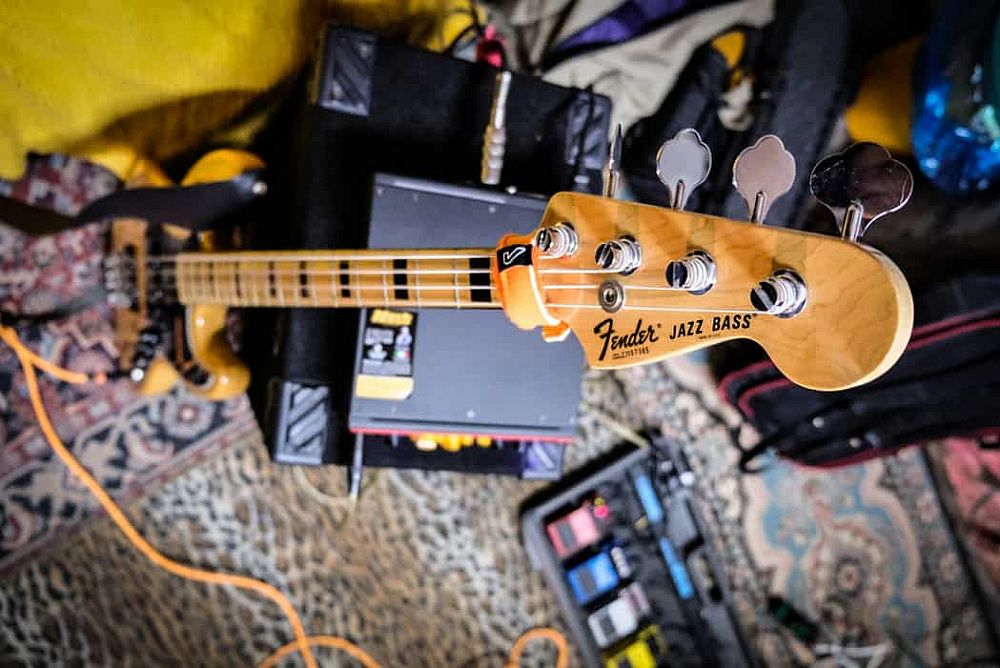The Role of Music in an ESL Classroom

Music is a uniquely human characteristic. No other living creature can recreate frequencies, beats, pulses, and harmonies as we do.
Table of Contents
Lack of Exposure to Meaningful Music
Are you ready to teach English abroad?
This post was written by our TEFL certification graduate Mariana V.
Psychological Point of View
It is known that music has deep psychological effects on us. After all, the human ear is the first sense to develop. That's why many pediatricians recommend classical music (specifically Mozart) even when the baby is in the womb. Neurotransmitters are stimulated and connections are done effectively, which increases cognitive abilities. A study showed that "elementary school students who listened to mood-calming music while completing mathematical problems were able to complete more problems and solve a higher percentage of them correctly than the group who listened to no music at all".

Also Read: Are there any age limits for TEFL teaching?
Lack of Exposure to Meaningful Music
After the early years of childhood, music education and stimuli seem to have been lost. Either by parents or schools that are concerned and primarily focused on physical, logical and social learning. Instead, children and adolescents are bombarded with popular music that might not be in their best interest. Most humans in highly populated areas, listen to an incredible amount of music daily. However, popular music is often used for advertising manners and trendsetters. If grown adults are manipulated by popular music, the effect on children is at least a tenfold, given that they're 'sponges' of knowledge and information.
Also Read: The 10 Most Common Types of EFL Teaching Jobs
Music and Educational system
There are a few programs that focus on appreciation instead of music interpretation. For example: In Mexico's public schools, there is only an obligatory music class involving flutes at 6th grade. Said class, doesn't teach reading sheet music or the importance of learning an instrument. Just plain and easy songs. That class won't have any functionality in the future and it may create an impression in a couple of students, but it won't impact or further develop their cognitive abilities. While playing instruments is a perfect disciplinary method, not all students are able to play one. Nonetheless, everybody can appreciate and interpret music.

Also Read: How to Motivate High School Students in the ESL Classroom
Music in an ESL Classroom
As a teacher, I intend to manifest music whenever possible. Not only for activities such as singing nursery lullabies or singable learning materials. As well as background music when in class activities are in place. And, if time allows, to give appreciation classes. This can be easily made with patterns in cartoons and synchronized music. To give time for students (depending on the ages) to listen to different genres within classical and popular music, such as romantic, classical, baroque, ballets, jazz, blues, and regional music from different cultures and countries. It will be a useful method for them, not to analyze solely lyrics, but also the artist's interpretation and to create their own interpretations.
I truly believe that if good, positive, challenging and rich music is played on a constant basis, more children will grow to be analysts, deep thinkers, sensitive and reasonable adults. And that will have an enormous impact in tomorrow's society.
Also Read: Teaching ESL & Knowing Your Audience: Young Learners vs. Adults
Are you ready to teach English abroad?
Music is but one tool to teach English, but the rewards are many. It inspires students to interact and build relationships with fellow classmates and their teacher. Celebrate the universal language of music with your students.
Music is the universal language of mankind. - Henry Wadsworth Longfellow
Apply now & get certified to teach english abroad!
Speak with an ITTT advisor today to put together your personal plan for teaching English abroad.
Send us an email or call us toll-free at 1-800-490-0531 to speak with an ITTT advisor today.
Related Articles:
- The 5 Best Ways To Build Rapport With Your TEFL Students
- The Benefits of Having Good Rapport with Students
- The 10 Best Destinations for Teaching English Abroad in 2018
- 5 Great Places to Teach English Abroad Without a Degree
- The Top 5 TEFL Destinations For Adrenaline Junkies and Adventure Seekers
- Online or In-Class - Which TEFL Course Should You Take?



